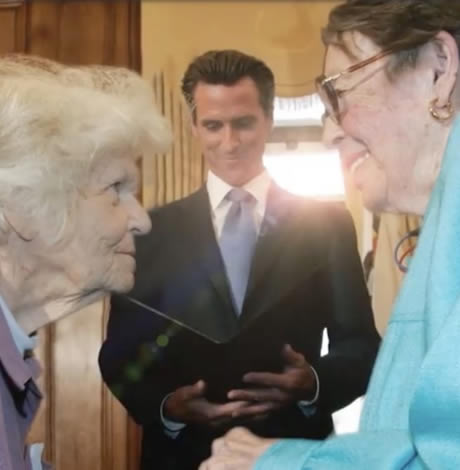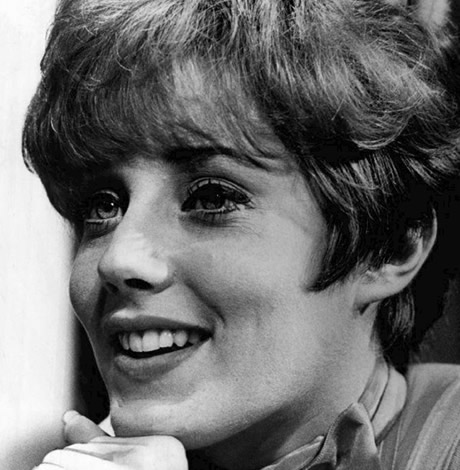Arts & Entertainment
‘In the Life’ celebrates 20 years
Groundbreaking TV series receives $1 million gift to mark anniversary
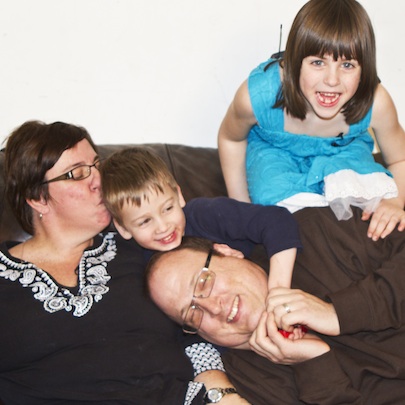
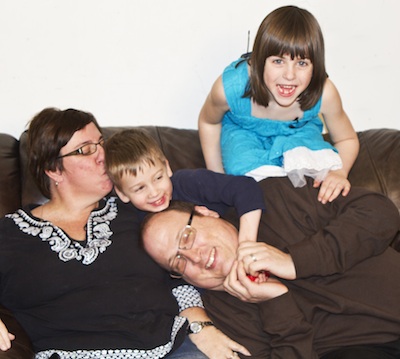
Maria and Brian Singer of Laurel, Md., and their children Lucas and Jackie, one of the families featured in ‘Becoming Me.’ (Photo courtesy of Brian and Maria Singer.)
The groundbreaking television series “In the Life” received an impressive gift for its 20th anniversary celebration — a $1 million donation from board co-chair and New York philanthropist Henry van Ameringen. This timely award gives the organization a chance to celebrate its milestone while planning for the next 20 years.
The media-shy Ameringen writes movingly about the importance of “In the Life” in a blog entry for the Huffington Post. The 82-year-old activist remembers growing up in a time when “the absence of images reflecting real gay life made it easy for people to assume we were everything bad that was said about us.” This was exacerbated when the AIDS epidemic struck the gay community in the 1980s and Ameringen, like many other LGBT activists, became politicized.
“Staying on the sidelines was impossible,” he writes. “The government was doing absolutely nothing to halt the spread of this disease nor help those who were suffering. AIDS was seen as a ‘gay disease,’ and with so few positive portrayals of gays in the media, and far fewer gay people being out at the time, most Americans believed all the stereotypes they had heard about us.”
However, the premiere of “In the Life” in 1992 contributed to the change in the media and political landscape. Ameringen notes, “The simple fact that there was a television program, airing on public television stations around the country, that represented LGBT people in such a genuine and accurate manner was stunning.” Veteran media expert and activist Cathy Renna says, “‘In the Life’ has become the ‘60 Minutes’ of LGBT journalism” and credits the show for creating a large and diverse audience for LGBT stories.
Michelle Kristel, executive director of In the Life Media, says that quality and content have been the key to the program’s longevity.
“In the early days,” she says, “we led from a place of novelty and uniqueness. When we were first broadcast in 1992, you just didn’t have out, proud gay and lesbian people on television. We were pioneers. But what has sustained us is the quality of our content and the fact that we are telling stories about real people and the critical issues facing our community.”
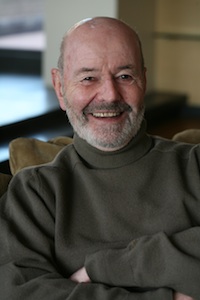
Philanthropist Henry van Ameringen gave $1 million to ‘In the Life,’ which has been described as the ’60 Minutes’ of LGBT news. (Photo courtesy Renna Communications)
The celebration of the show’s anniversary is already underway. The 20th season kicked off with a red carpet gala and an October 2011 episode that looked back at the history of the show. Kristel explains that “In the Life” began as a variety show hosted by lesbian comedian Kate Clinton, but that over time it evolved into a behind-the-desk news show with in-the-field reporting before assuming the short-form documentary format it has today. Over time, the award-winning show has also developed a robust online presence with web exclusives that supplement its television programming.
Kristel says the staff had a blast putting together the retrospective show. “It’s always fun for us to look at the old tapes. We had a lot of fun putting it together and taking in the depth and breadth of all that we’ve done over the years.” The anniversary celebration will culminate in the annual June Pride Brunch where supporters can “eat, drink and be merry” while watching New York’s Pride Parade from the windows of “In the Life’s” studios on Fifth Avenue in Manhattan.
When asked about the importance of the show, Kristel points out that the impact of the series goes beyond its television and online audiences. For example, this month’s episode, “Becoming Me,” which chronicles the lives of families dealing with transgender and non-gender-conforming children, is already becoming a resource for educators, parenting groups like PFLAG and social service agencies. Kristel says, “The show is a beautiful articulation of what we do really well, which is to take an issue and tell personal stories that relate to the issue and that make it tangible for our audiences. We worked on this piece for nine months and we were able to go in-depth with the eight families we interviewed and really understand their journeys.”
Kristel also cites the impact of the show on legislators and policy-makers. The two-part episode on HIV criminalization educated viewers about a little-known fact. “Very few people,” Kristel points out, “realize that in many places you can go to prison for attempted murder for having consensual sex if you are HIV-positive.” The first part of the episode, “Legalizing Stigma,” which aired in December 2010, was shown at the first-ever congressional hearing on HIV stigmatization and led to the introduction of legislation to rescind those laws. The second part, “Perpetuating Stigma,” which aired in February 2011, was shown at this year’s United Nations AIDS conference in Oslo and was referenced as a resource in the Oslo Declaration.
In addition, the celebrated web exclusive “Injustice at Every Turn” brought to life a report on transgender discrimination that was produced by the National Center for Transgender Equality and the National Gay and Lesbian Task Force. “The report was devastating,” Kristel said. “I read the report and I thought ‘people need to know about the profound levels of discrimination that transgender people are facing.’ But the fact of the matter is that very few people are going to read a report like that, so we produced a video that put a human face on these issues. That video was presented at the U.S. Department of Labor as a way of informing the department about discrimination in the workplace. This is one of the things we do well, to take an issue and put a human face on it and use it to move people to have a better understanding of the lives that people are living and the ways that people are impacted by social injustice and discrimination.”
Kristel is quick to point out that “In the Life” also produces some fun stories as well. A recent episode profiled the late Sam Steward, a sexual renegade, writer and pornographer. With a hearty chuckle, Kristel relates that “he started life as an English professor, but found that the life of an academic didn’t suit him particularly well. He left that to become a writer of erotica and a tattoo artist. Along the way, he documented, in some detail, his sexual escapades. He had a wooden card catalog that he called “The Stud File” with little cards and descriptions of everybody that he ever had sex with and with pertinent details about their physiques and their skills.”
Ameringen’s gift comes at a critical time for In the Life Media, allowing the organization to continue to deliver stories that document the lives of LGBT people and to explore the issues that affect them. About $100,000 of the donation will be used to match new and increased contributions. The balance will offer the organization a valuable opportunity to invest in its future.
Kristel says, “The media landscape has changed radically since we were first broadcast, not only in the way media is produced, but also the way that people consume media. What has remained constant is the power of media to shape the national dialogue. So we will be using this gift to make an assessment of the organization. We will be investing in digital initiatives that will allow us to not only improve our tools for engagement with our viewers but to give our viewers the tools to help us advance equality for LGBT people.”
“In the Life” airs locally on WETA and WMPB and programs can be seen at itlmedia.org/.
a&e features
Rehoboth’s Purple Parrot still soaring after 25 years
Owners Hugh Fuller and Troy Roberts reflect on keys to their success

Two buildings, one romance, and 25 years later, the Purple Parrot is busy as ever.
If the tropical purple paint covering the outside with rainbow flags and walls covered with love notes, affirmations, and drunk wishes scribbled on dollar bills don’t indicate it already, the Purple Parrot is an institution in Rehoboth. The gay-owned and operated fixture is celebrating its 25th anniversary this year.
The Blade sat down with owners Hugh Fuller and Troy Roberts of the Rehoboth establishment to discuss the past 25 years and plans for the future.
Fuller and Roberts, both gay, have been working together since before the Parrot was even an idea. Fuller was a co-owner of the Iguana, another restaurant and bar in the town.
“I was in the Iguana first with another business partner,” Fuller said. “I was going to get out and move up to Pennsylvania with him [Roberts]. He decided that he was going to come down and said, ‘Well, what if I go in with you at the Iguana and we do it together?’ And I was like, ‘Alright,’ so we did, and it just snowballed from there. We were always in the restaurant business together from the beginning.”
“Yeah, that was really luck, too,” Roberts began. “Because-”
“Because Grindr wasn’t around then!” Fuller interjected, laughing as Roberts began to roll his eyes and smile.
“I had a small place up in York,” Roberts continued. “Selling that kind of gave us some money to buy the other guy out. We just had friends supporting us and helping us along the way and it just kind of worked.”
“Kind of worked” would be an understatement. The pair moved on from the Iguana and opened the Parrot. Then, after opening the Parrot, they decided to shift locations to a larger location down the street to accommodate the growing demand. Then in 2010, the Parrot expanded again, adding the land behind the Rehoboth Avenue location, which provided an additional 950 square feet as well as giving patrons access to Wilmington Avenue.
The bar and restaurant, which serves American cuisine with a beach flair, has always focused on being a welcoming space to all regardless of sexuality, gender, race, nationality, or identity. This, the duo explains, is one of the reasons why the restaurant has had such a lasting impact on the Rehoboth restaurant and gay communities.
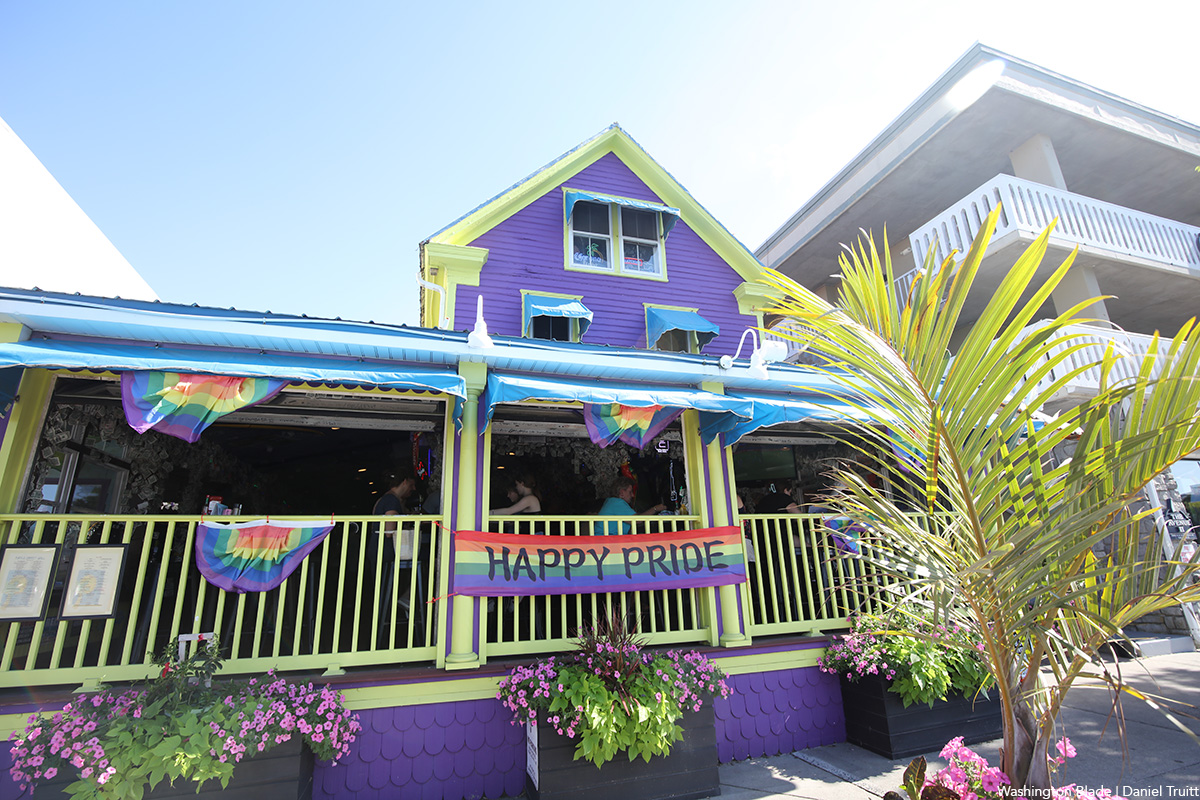
“Back in the ‘90s when we first opened up, the amount of straight crossdressers that would come were like, ‘Oh, are we allowed to come in? Are we welcomed into a place like that?’ And we were like ‘Everybody that walks on this planet is welcome here!’” Fuller said. “Those are the kinds of things, you know, where people just felt comfortable. They would get stared at out on the street, but inside they would walk around and feel like they were in their own skin. It was just really cool to see.”
The feeling of acceptance has been a crucial part of the Parrot’s success.
“I got an email a couple of days ago — probably two weeks ago about a woman bringing her daughter down,” Roberts said. “She’s 16 and was bullied through school — hard times, depression, tried to harm herself a couple of times. It was just really sweet that she reached out and she’s like, ‘My daughter was a completely different person when I brought her into your bar. Everybody treated her nice — the bartenders, the waitstaff, I mean, everybody was friendly. She just doesn’t experience that often being an out 16-year-old lesbian. We just can’t even thank you enough.’ It’s those kinds of things that we get often.”
“[The mother] mainly wrote it because we put the Pride flag on the Parrot’s Facebook wall,” Fuller added.
The colorful lights, disco balls, and staggering number of dollar bills stapled to the walls highlight that the Rehoboth community has embraced the Parrot. It’s not uncommon to see a group of gay patrons sitting at the bar in bathing suits sipping on orange crushes and talking about their day at Poodle Beach while a bachelorette party belts out Lady Gaga on karaoke night in the room next door. That is the vibe Fuller and Roberts have curated — a fun and friendly tropical oasis in the middle of Rehoboth Avenue.
A crucial element of this curated vibe, the pair point out, is treating employees and guests with respect. When asked what they have learned that helped them be so successful over the past 25 years, Fuller and Roberts said the same thing.
“Patience, organization, and treating people well,” Roberts said.” I think that’s probably one of the bigger of the three — you treat them well and they treat you well. I think it’s just a mutual respect.”
“It took me about 30 years to learn that it’s not just all about work,” Fuller said. “I used to bust my butt in there all the time and the focus was [on] the restaurant. I know [Roberts] said patience, I would say mine was being patient too because I learned going in that it’s easier to deal with your employees without shouting at them. It took me a little while to get through that.”
He added that compensating staff fairly was also one of their keys to success.
“Before we take a nickel out of our business, we put $1 back into our employees’ pockets,” Fuller said. We want the business to survive and it has been incredible.”
Fuller added that this sentiment, of having patience and treating everyone with respect, goes both ways — it applies to the Parrot’s patrons as well.
“If you leave the Parrot angry, it’s your own decision,” Fuller explained. “If we don’t make you happy there, it’s because you’re choosing not to be happy. We will go out of our way to correct anything and everything that we can. So if you leave [unhappy], it’s not because we couldn’t do it. It’s because you didn’t want us to.”
The two discussed their history together — anyone who has them interact can see their spirited energy and appreciation for each other.
“Troy and I used to be a couple when we first opened, and we were together for about 10 years,” Fuller said. “And then we kind of went our separate ways, but the restaurant kept us in very close contact. Sometimes I think we’re probably closer than most couples are because of the way that the restaurant has us tied together.”
“Even during the worst of it, we never stopped communicating on a daily basis,” Roberts added. “Obviously, you can tell by his personality why that all went south,” he said laughing.
“Well, you can tell by the way that he looks why it went south.” Fuller jabbed back, also laughing.
“Hey!” Roberts replied.
“I wasn’t gonna continue dating my grandfather!” Fuller joked.
Despite the end of their romantic relationship, there was still clear evidence of perpetual good energy between the business partners. The two then started to reminisce about the past 25 years and the struggles and successes they overcame to reach this milestone.
The pair mentioned the two biggest struggles they have faced in the past quarter century. One was when Rehoboth Avenue was dug up for the Streetscape improvement project, and the second was the 2008 recession.
“We were refinancing our houses several times to keep it afloat there for a little while,” Fuller said.
“But hey, we got nice sidewalks now!” Roberts added. “So that’s good.”
It’s not just the customers who grew up with the Parrot; so did the staff.
“I mean one of the kids who bussed for us is now our dentist,” Fuller said.
“One of the busboys from the Iguana days, he’s our dentist now,” Roberts explained. “They actually started dating in high school while working together at the Iguana. One of them followed us to the Parrot and her daughter just worked for us two summers ago as a host. He’s our dentist, and they’re still local. We just sold him a house over in Lewes, because we’re both Realtors on the side. When you look back at that, you’re like, ‘Oh, my God, you were just a kid. And now you have a kid graduating college!’ It goes fast.”
It seems that many of the staff have a soft spot for the Parrot, and for good reason. An important aspect of keeping their employees happy is supporting them. At first, it was trips to Disney World with some of the servers and renting out the local waterpark to give kids time to enjoy the summer. Then it became Christmas bonuses, which are not common in the food service industry.
The Parrot helped raise more than $10,000 for one of their employees dealing with fallout from the war in Ukraine.
“One of our bartenders being from Ukraine, when all that went down, amazingly, how he was able to bring a lot of his family over,” Roberts said. “And until they actually got grounded, he had places for them to stay all lined up.”
“The reason that he was able to get them over is because we did a fundraiser at the restaurant and our customers raised over $10,000 to help sponsor his family and one of our other employees’ families,” Fuller said. “They brought them all the way up through Mexico and into the country and now they’re here with citizenship cards and working for us. We got them houses and apartments too.”
“We don’t care what they are, whether they’re straight, Black, Chinese, Mexican. It’s like the Benetton of Rehoboth in here,” Fuller added. “It’s the United Nations. We support everybody and we’re not afraid to show our support for everybody.”
In addition to reminiscing about some of the good things the restaurant has done for its employees, they both talked about notable guests of the Parrot.
“My mind went right to the guys from Manhattan, who would always come down,” Roberts said when asked if any guests have stuck out to him over the past 25 years. “They just happened to find us. They had never been to Rehoboth before. They walked into the original Parrot and had every single year after that until two of them passed away. It just became like a yearly week, then it turned into two weeks, and then it turned into two times a year. And it was all just because they came to one bar, and had so much fun. They would sit there all day, all night, go home take a nap, and come back for dinner. And it was just their place.”
They have faced some objections from those who were not as receptive to their tolerance of different people.
“We get the same hate that everybody else does — the same hate that the city got when they put the rainbow crossings in and the flag up,” Fuller said. “I was just telling Troy about a conversation I had yesterday with a guy. The front of our business for Pride month has flags on it and says ‘Happy Pride.’ And he said, ‘I was going to come in here but I see you’re supporting the gay community with your rainbow flags.’ And I said ‘Yes.’ And he goes, ‘Well, I don’t see why you don’t have flags for veterans.’ And I said,’ Well, as a veteran, I can tell you that we don’t serve to be recognized, we serve to protect and to give you guys your freedom. It’s not something that we want recognition for. But there is a flag, the American flag, that flies over the top of our business every day to represent the veterans of this country.’”
Despite the opinions of some who are less than welcoming of the LGBTQ community, the Purple Parrot will always be a safe space to celebrate, the two affirmed. And celebrate they will.
The Parrot already hosted one party to celebrate the milestone of the bar early in the summer, but will throw an even bigger bash at the end of the season to commemorate the history and hard work that has gone into making the Parrot ‘fly.’
“On May fifth we had a big party,” Fuller said. “We’ll have another one at the end of the summer in September. We did one at the beginning and then we’re going to do a really big one at the end of the summer. The first celebration, that weekend, turned out to be a little rainy, and misty so it wasn’t as big as it could have been. It was packed inside but it wasn’t packed outside like it normally is. We usually do a full cookout barbecue, all that stuff and we’ll do that again at the end of the summer. We’ll have another one of those with DJs. I am not sure about a drag show, but we’ll probably have something because the girls are trying to get something together. We don’t want to spoil anything but there will be a surprise.”
When asked to give their final thoughts on owning and running one of Rehoboth’s most successful businesses as gay men, the two made it clear that it has to be a safe and welcoming space for all for it to succeed.
“I think you have to be all-inclusive,” Roberts said. “I don’t think in today’s world you can just really limit it to the gay community. You have to be gay-friendly, and accepting as well. And I think that helps because it gets non-gays in there and everybody just starts to get along. It becomes more accepted and then becomes the norm.”
Fuller agreed but emphasized being true to one’s character in collaboration with being inclusive is the key to their success.
“Being gay isn’t who we are, you know, it’s what we are,” Fuller said. “You can’t be afraid to be you. … If you’re going to open up a business, you want to make sure you lean on the community, because the community is going to be your biggest support. And that’s how we definitely lean on the gay community.”
The Purple Parrot is located at 134 Rehoboth Ave. in Rehoboth Beach and is open Monday through Saturday from 11 a.m. to 1 a.m. and is open from 9 a.m. to 1 a.m. on Sundays. For more information, visit their website at ppgrill.com.
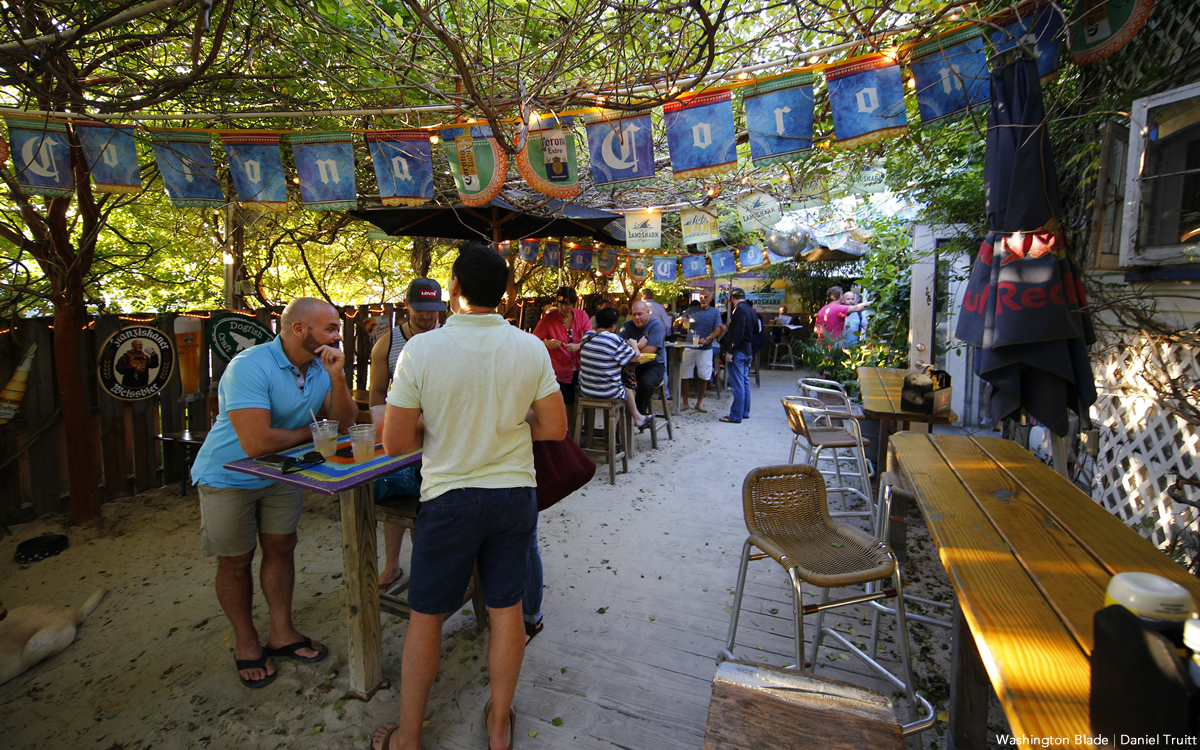

The 2024 New York City Pride Parade wound through the streets of Manhattan and past the historic Stonewall Inn on Sunday, June 30.
(Washington Blade photos by Daniel Truitt)
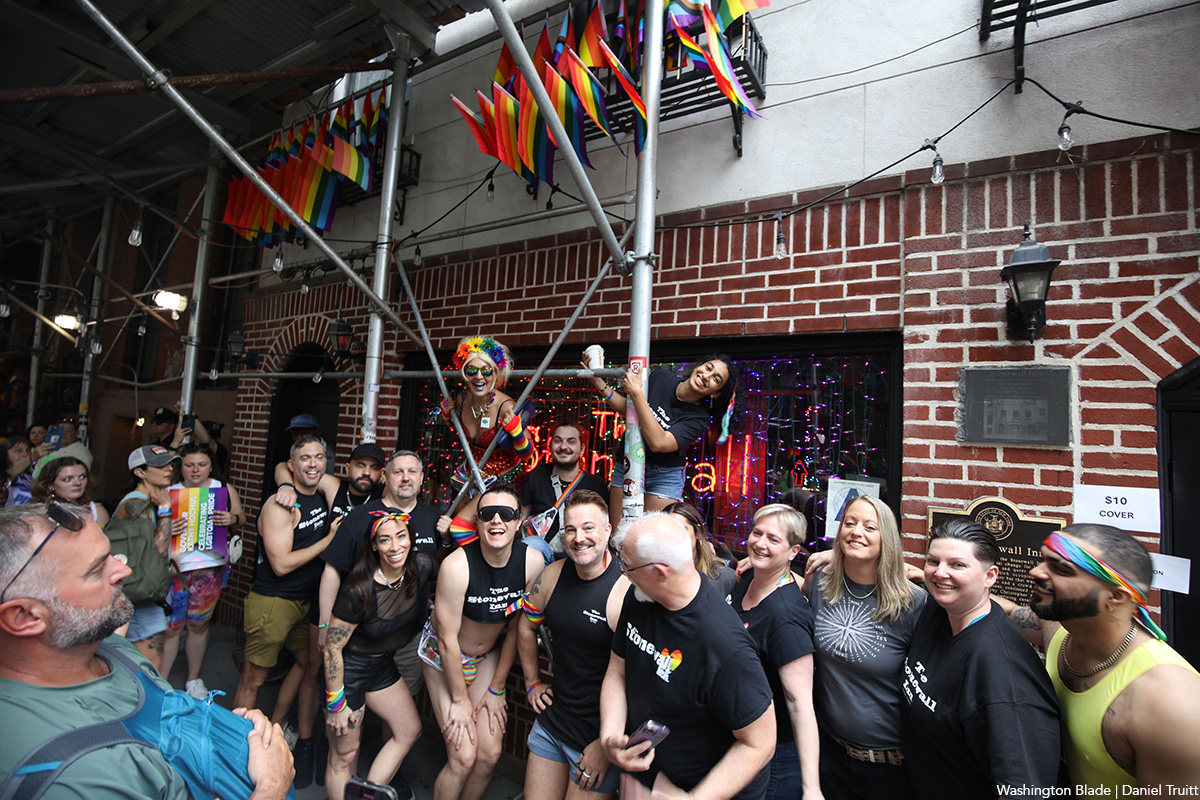
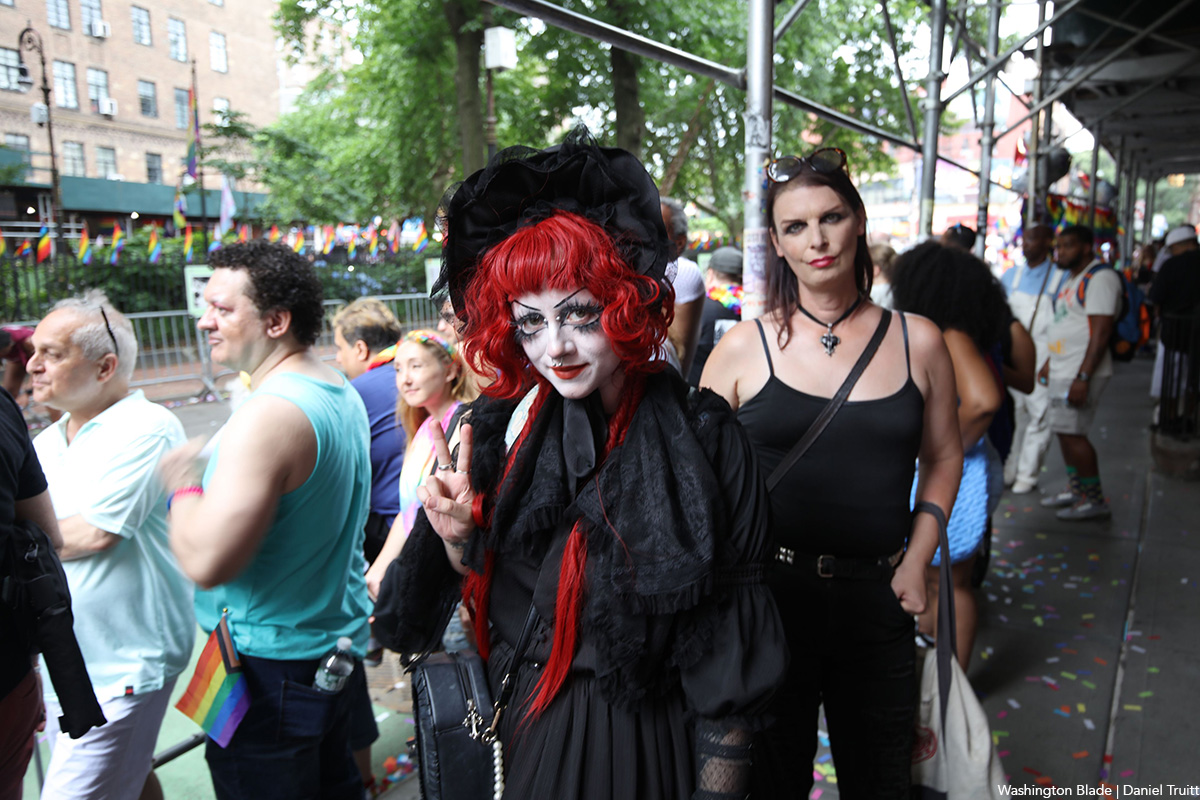
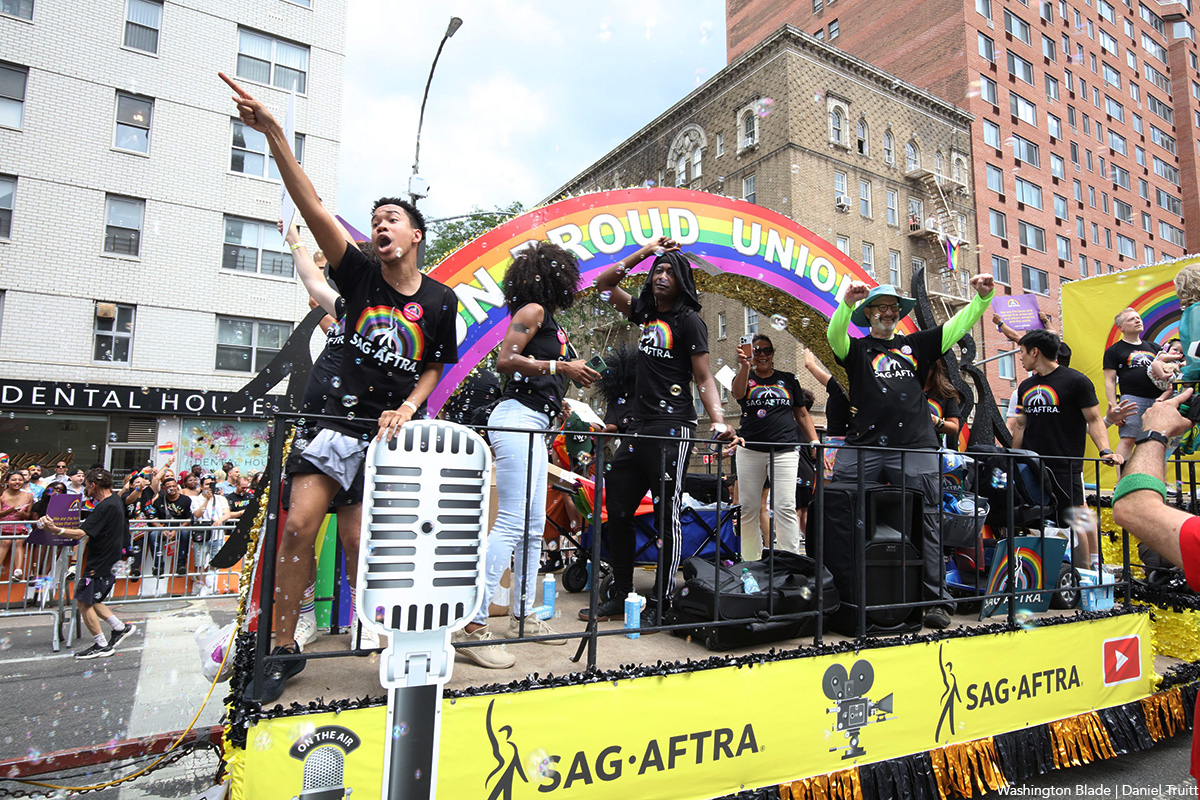
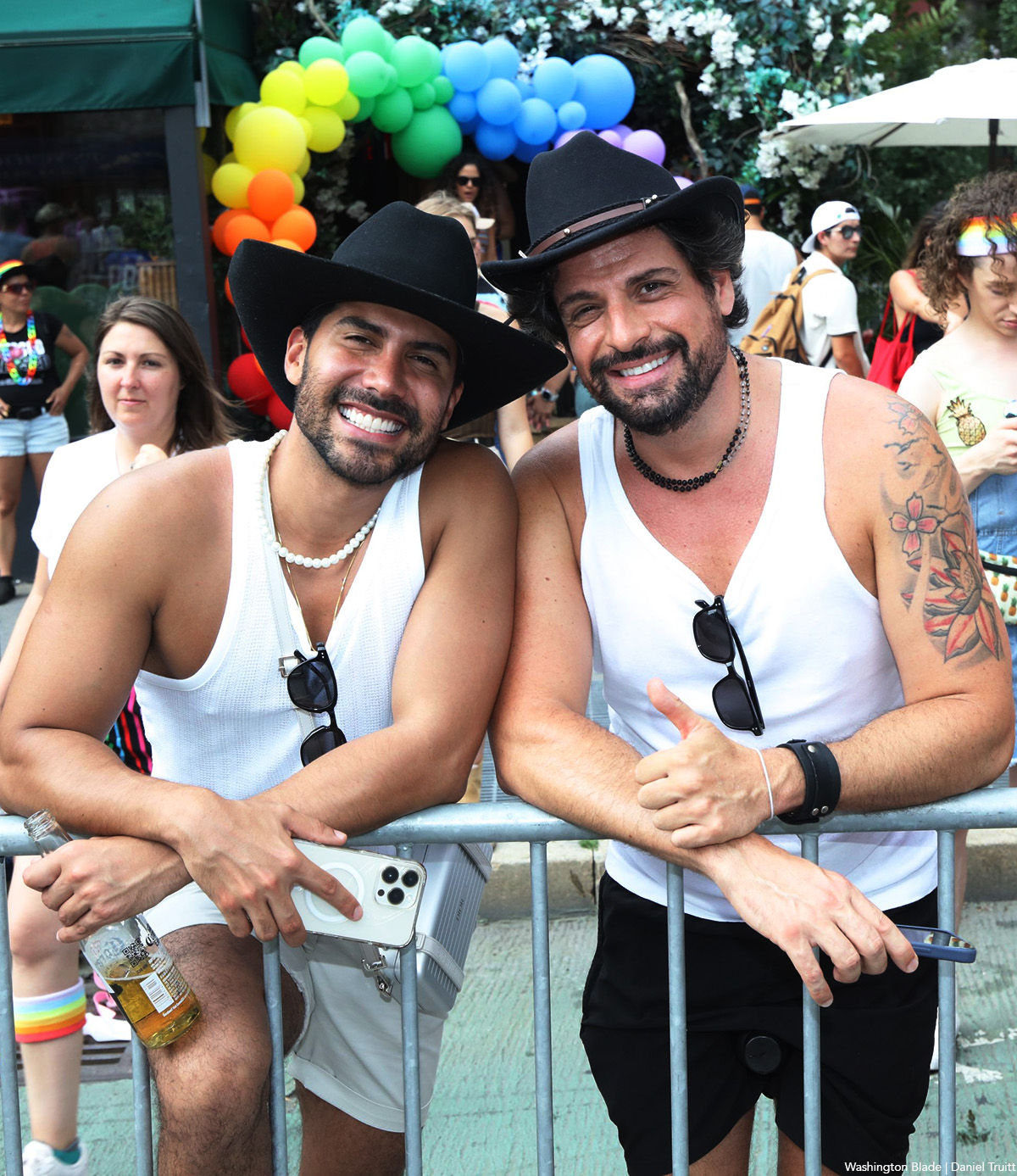
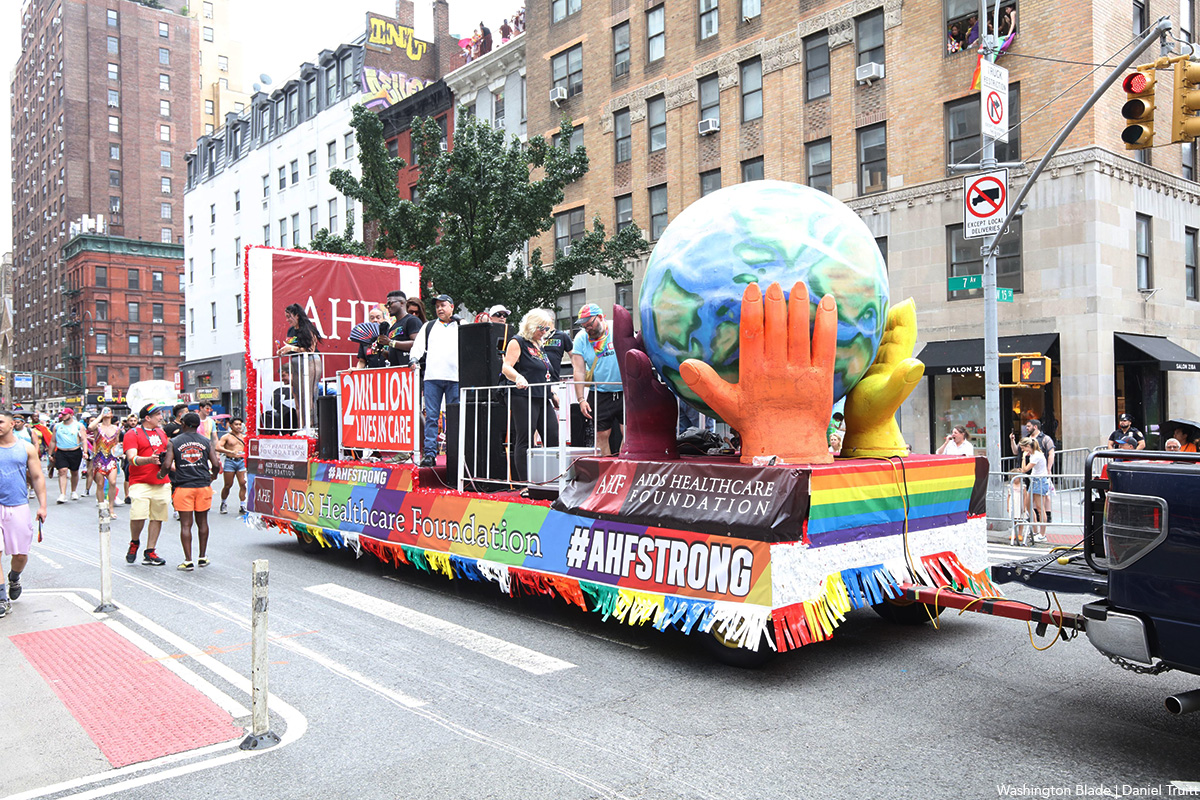
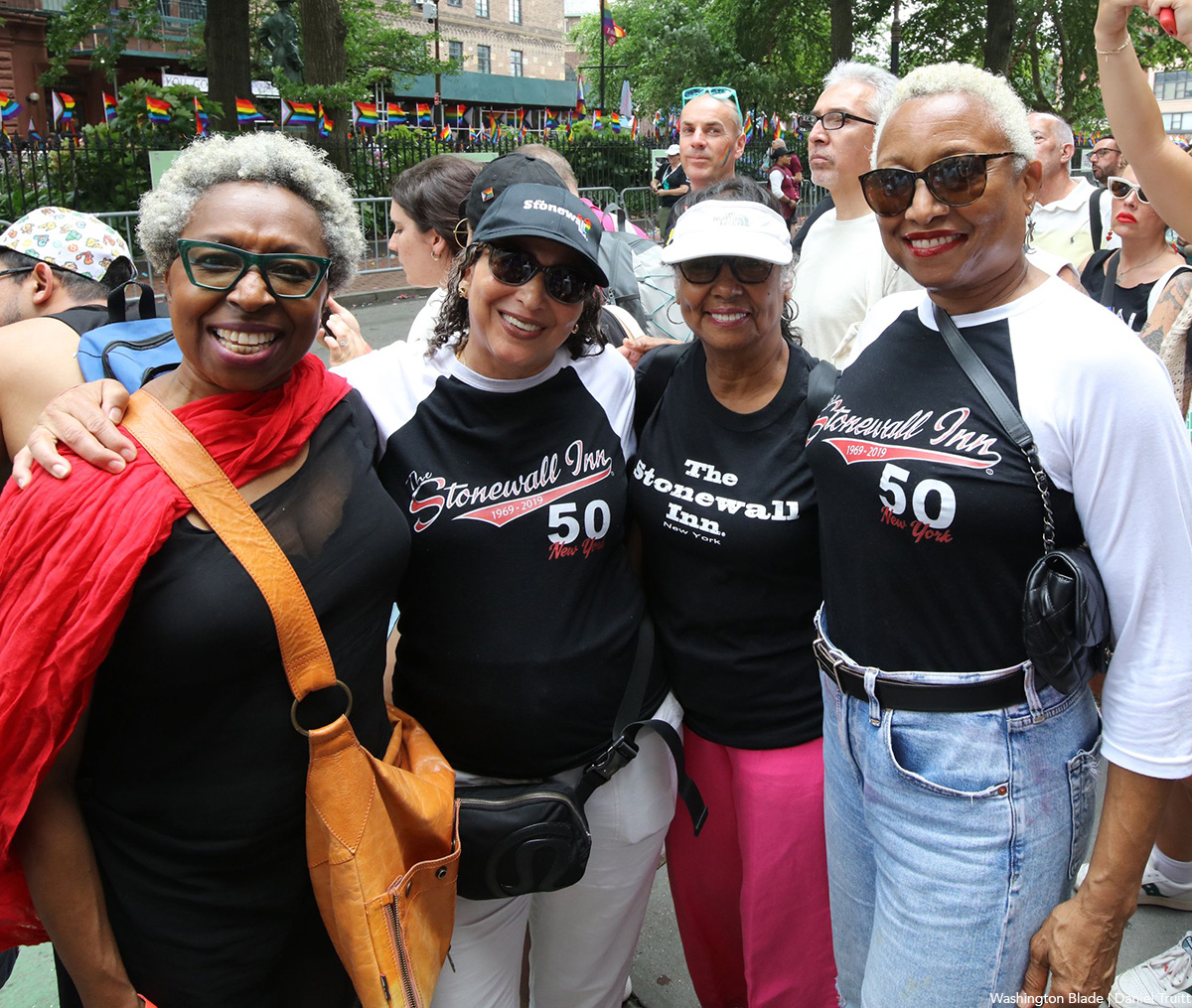
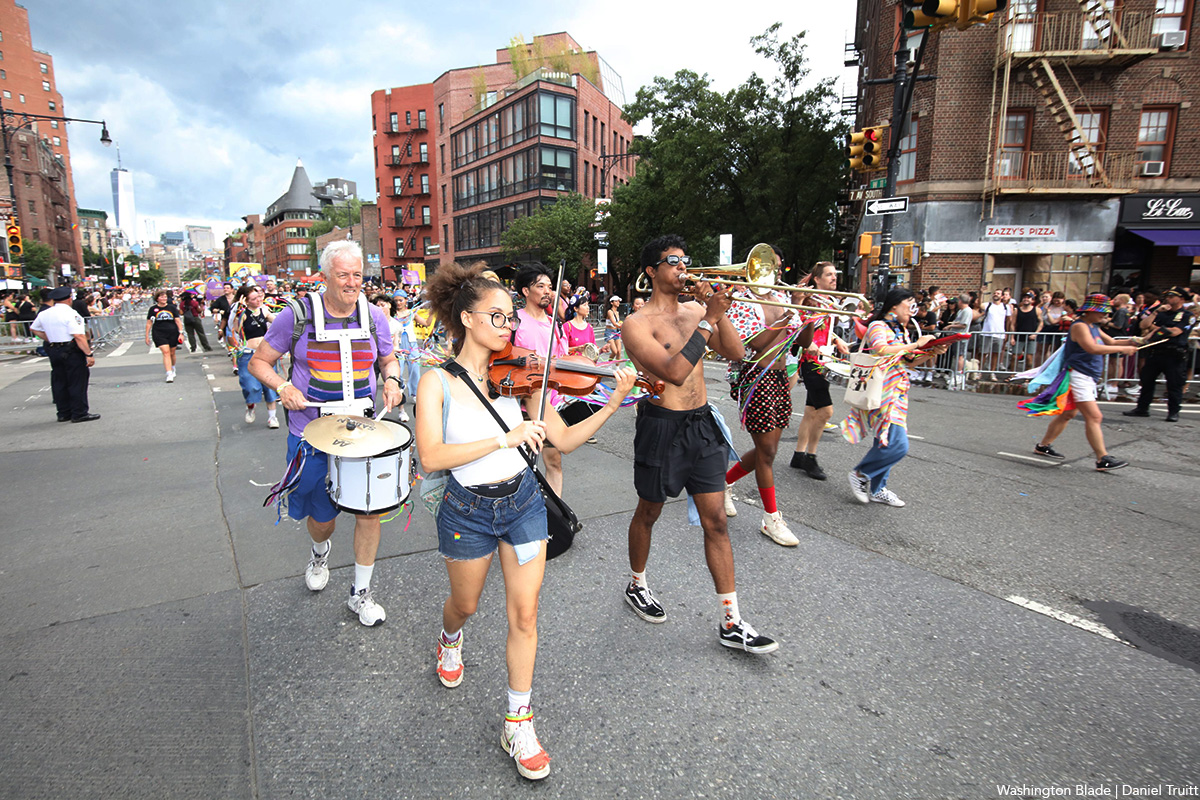
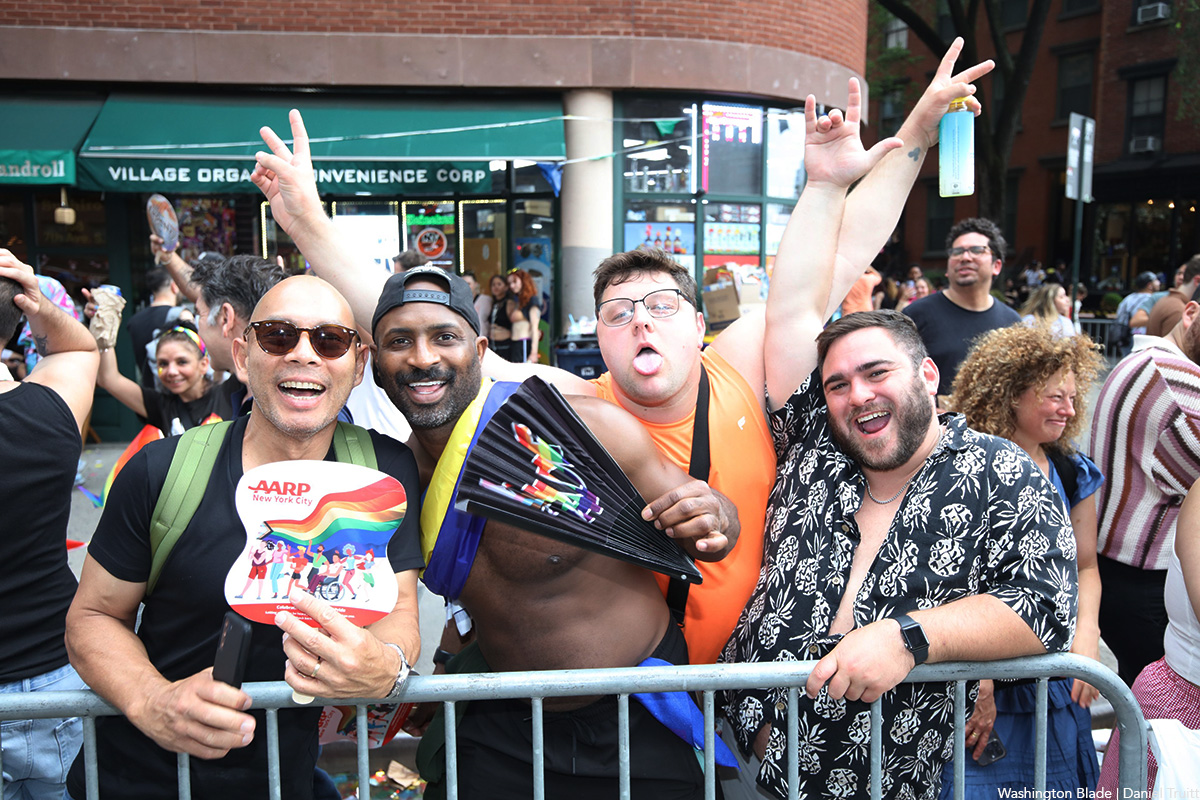
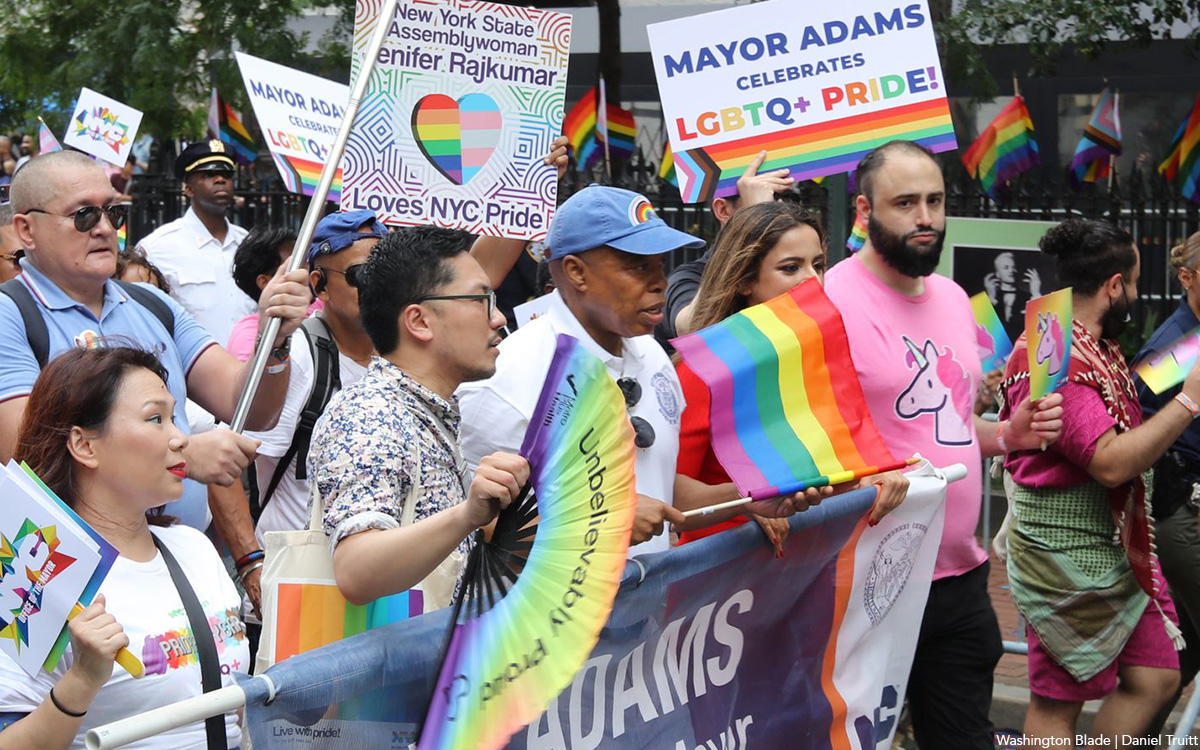
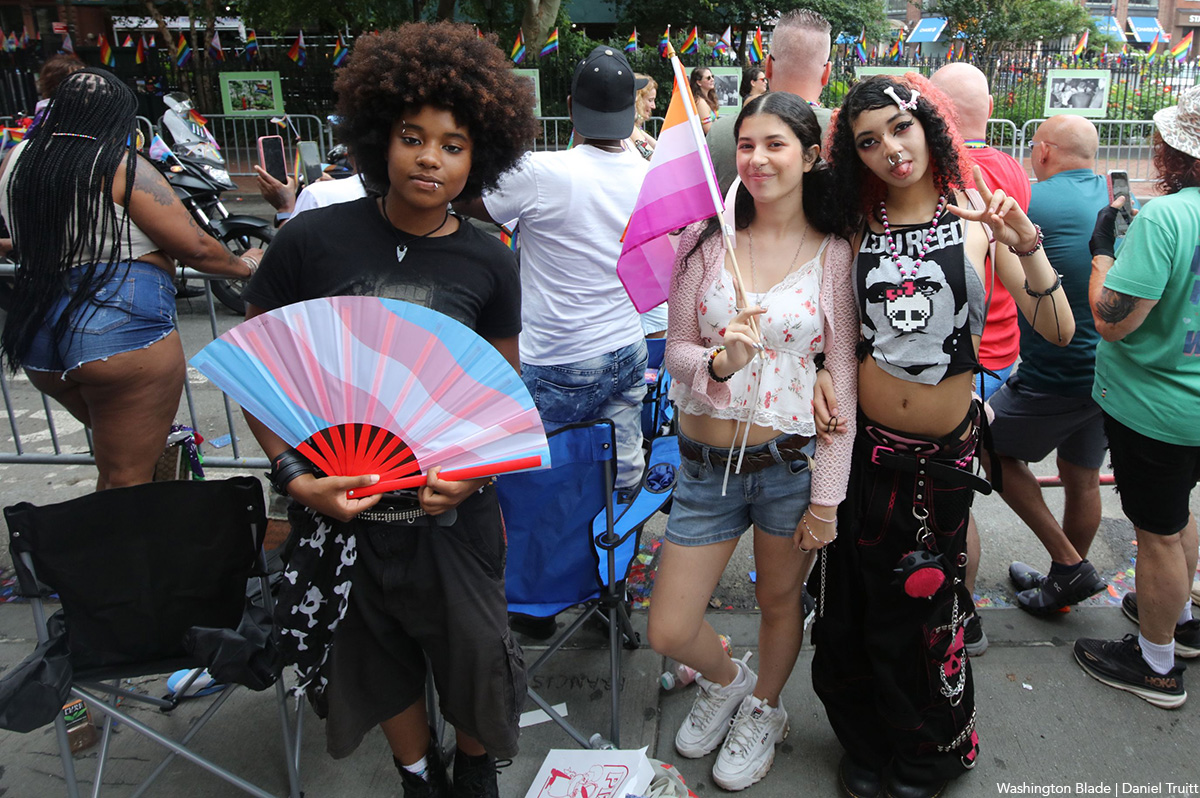
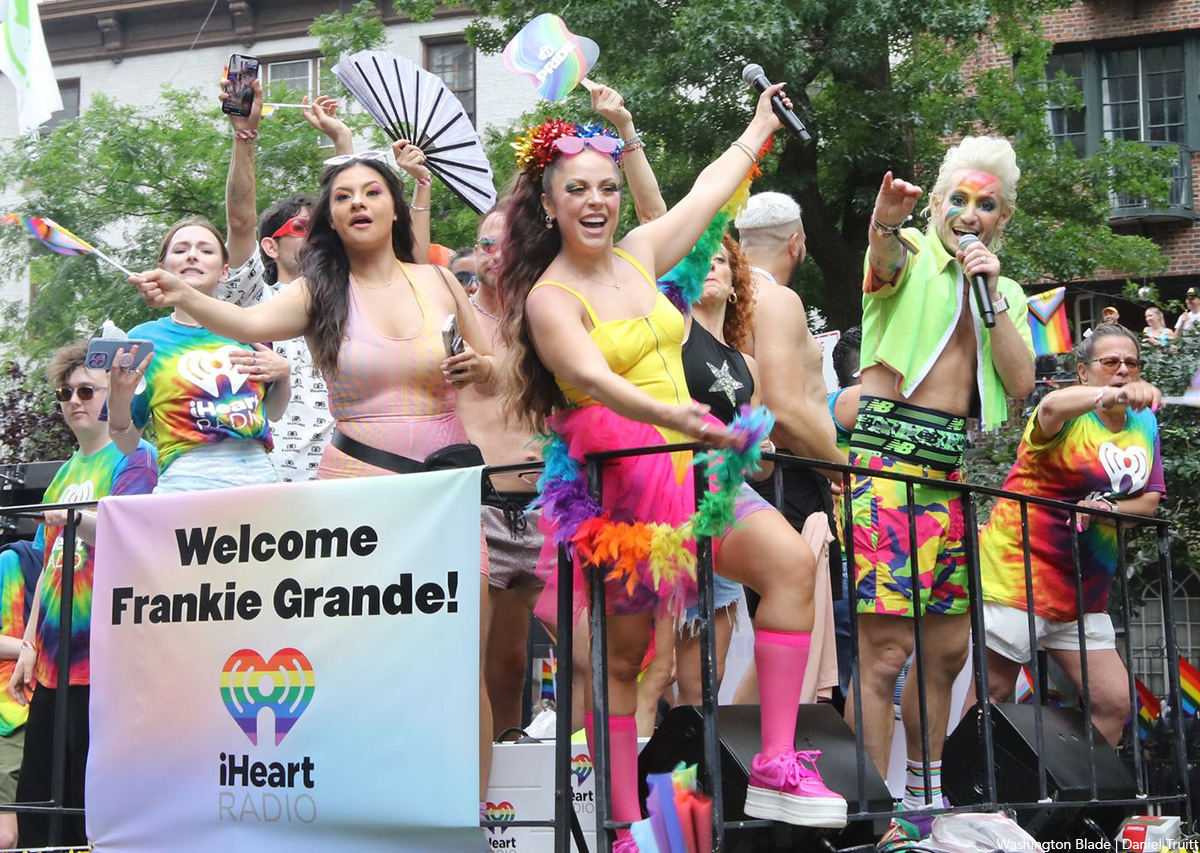
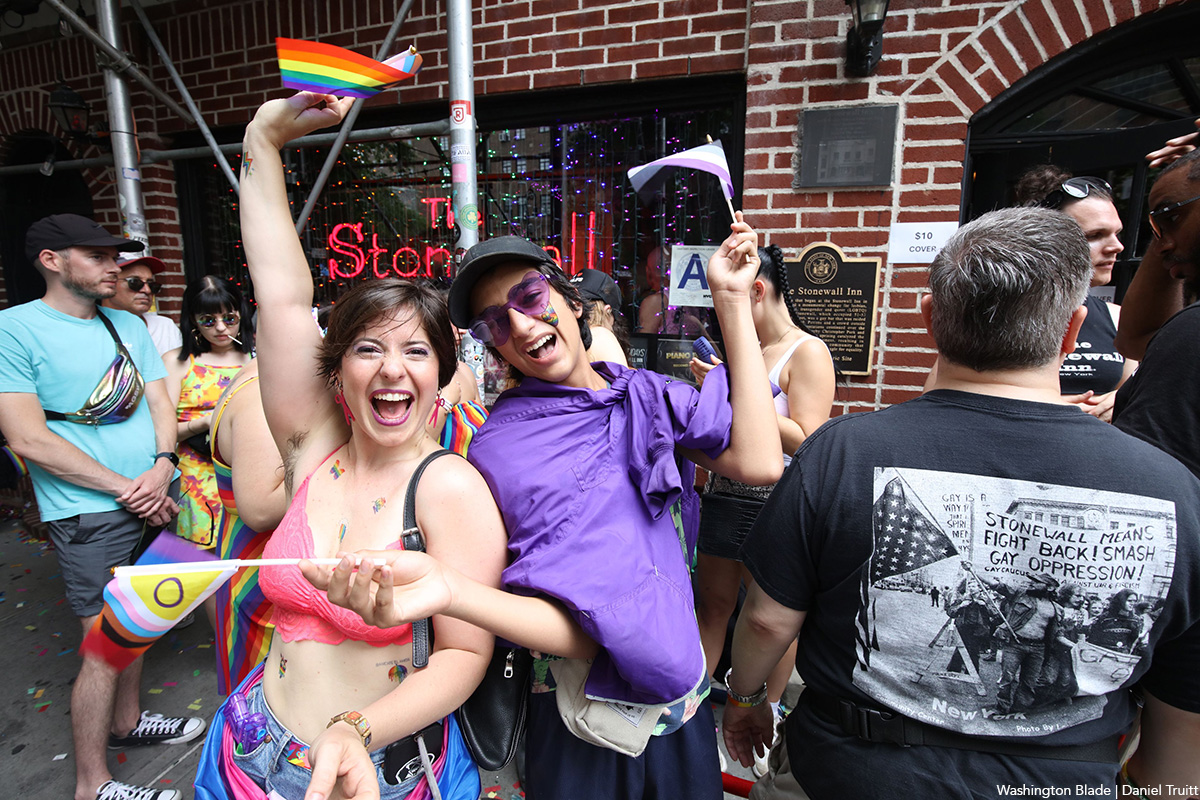
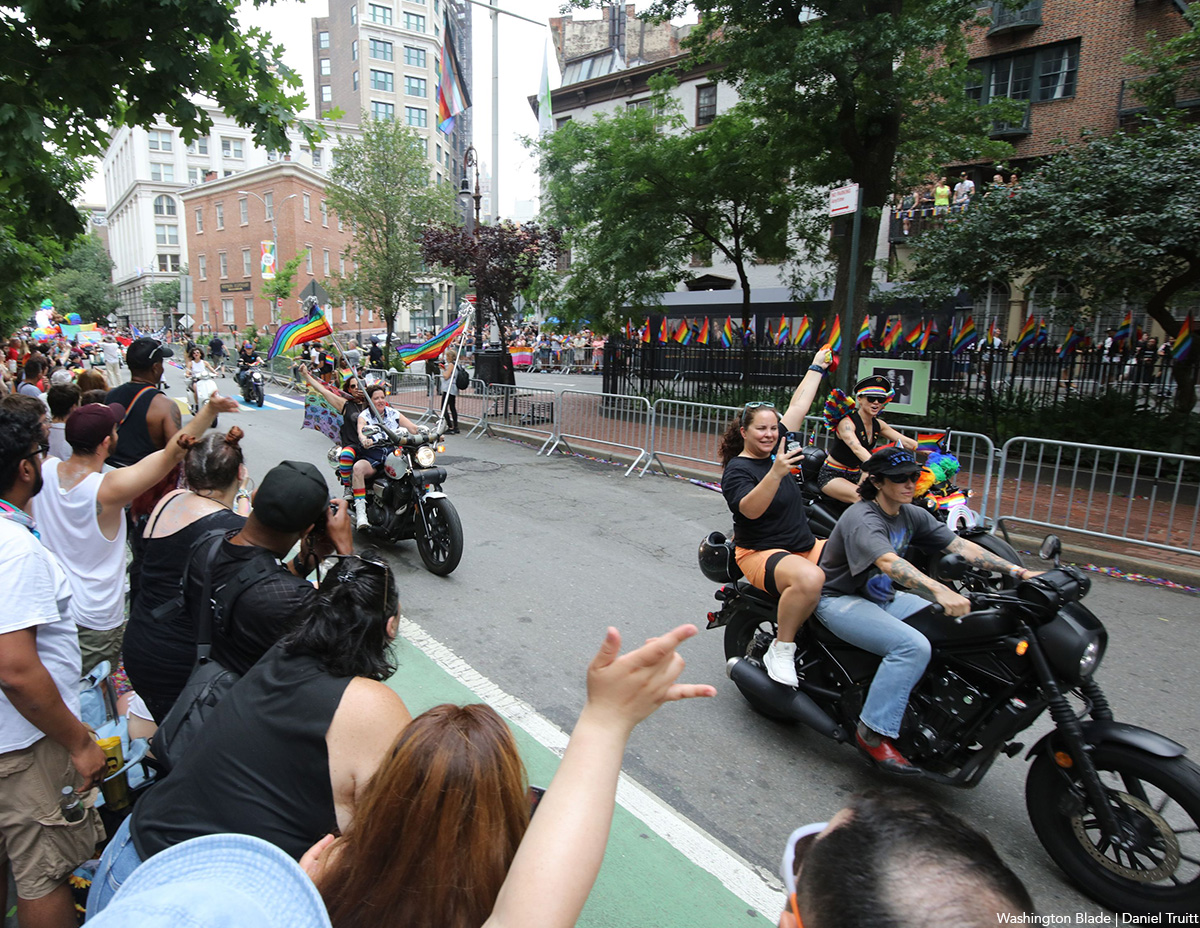
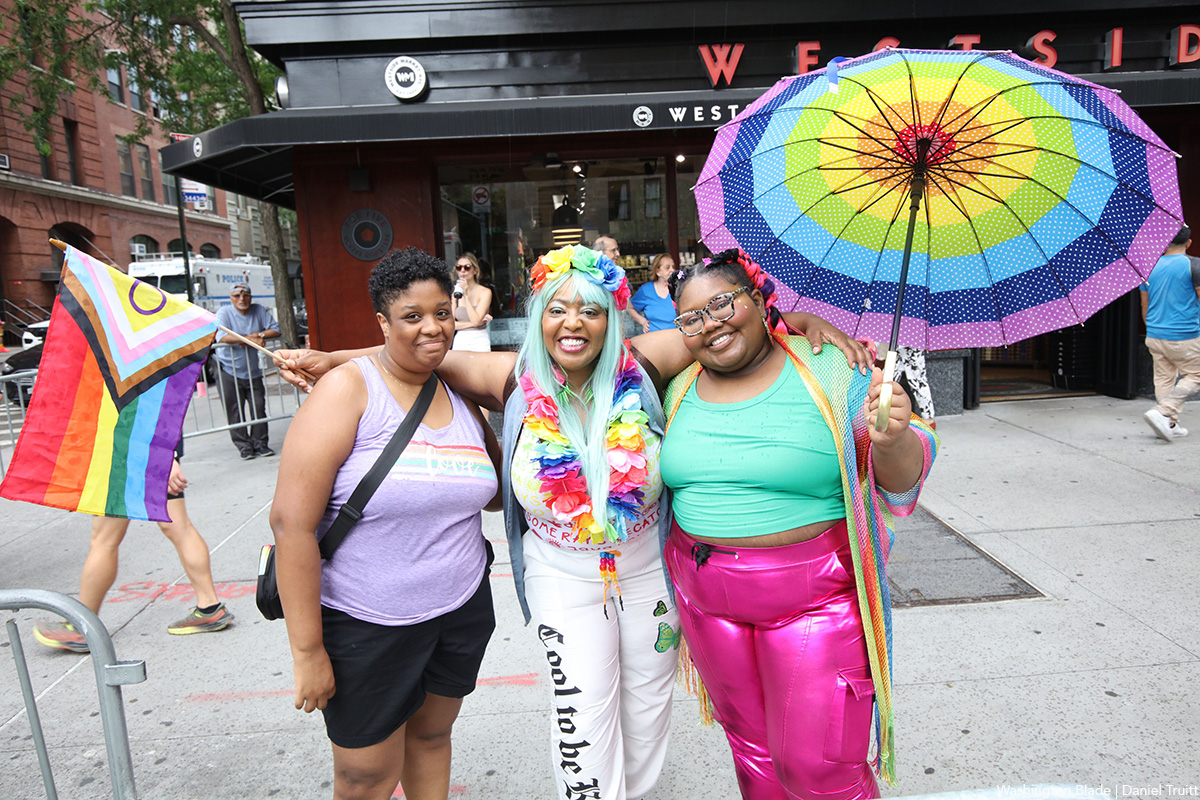
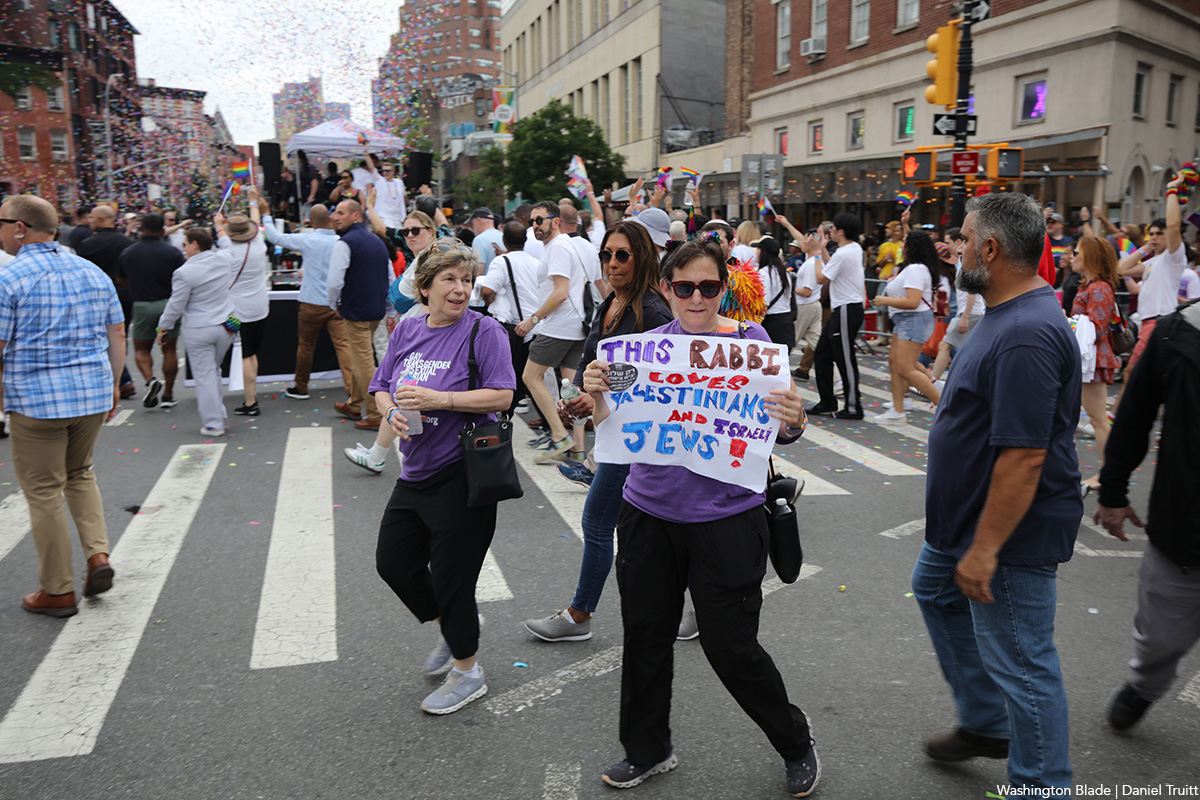
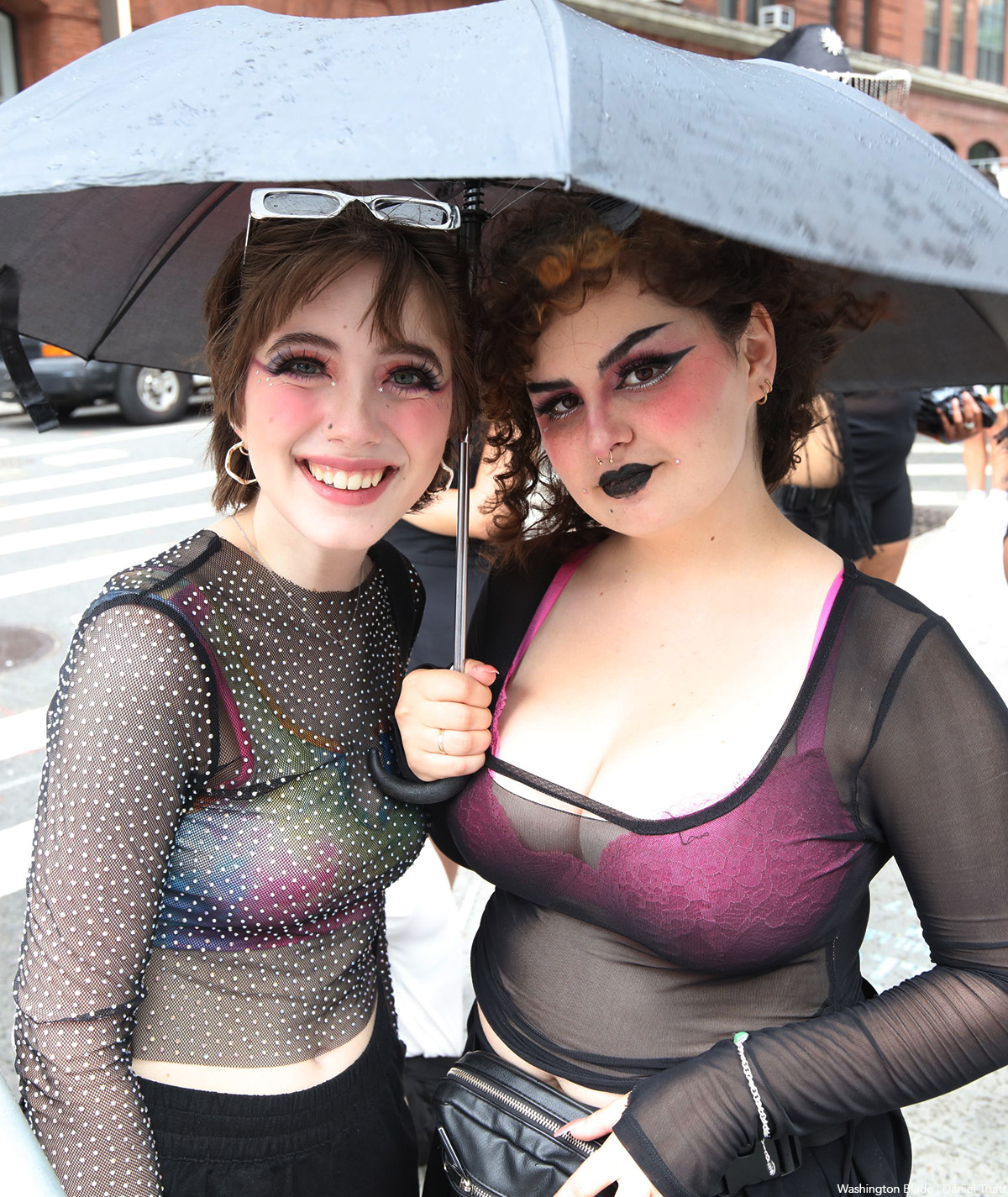
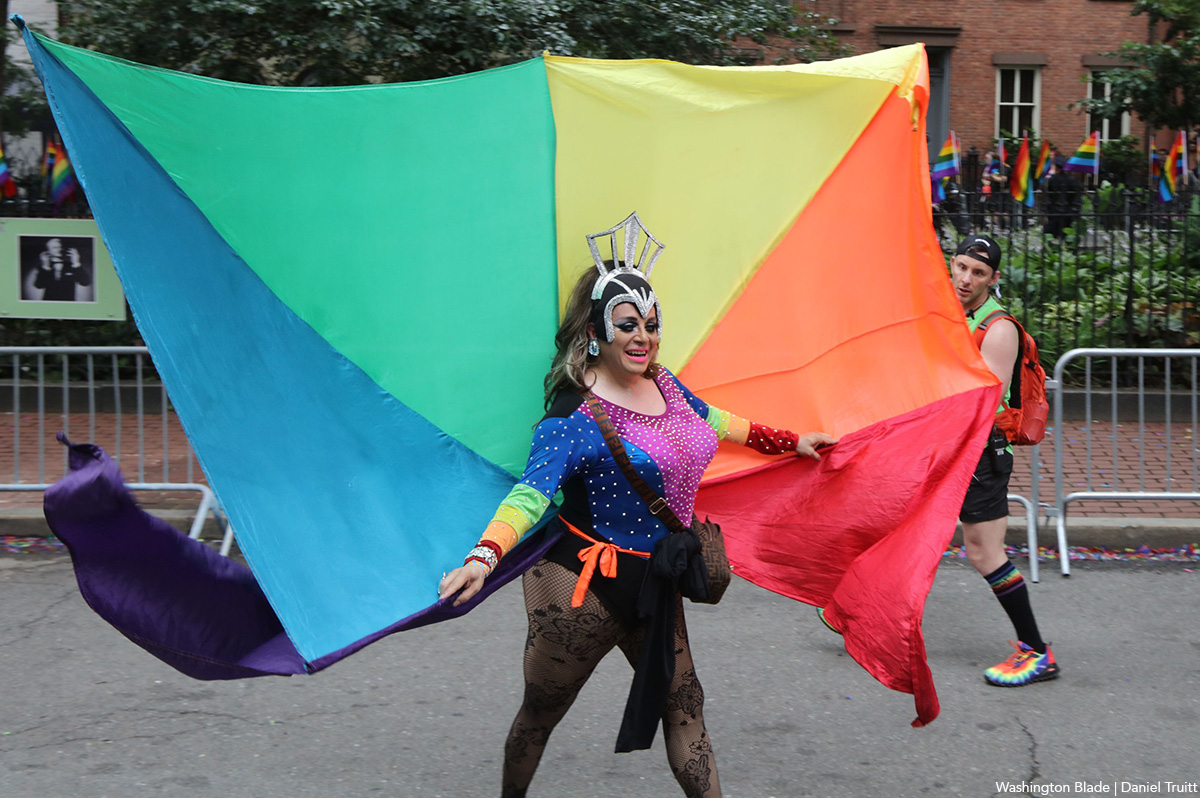
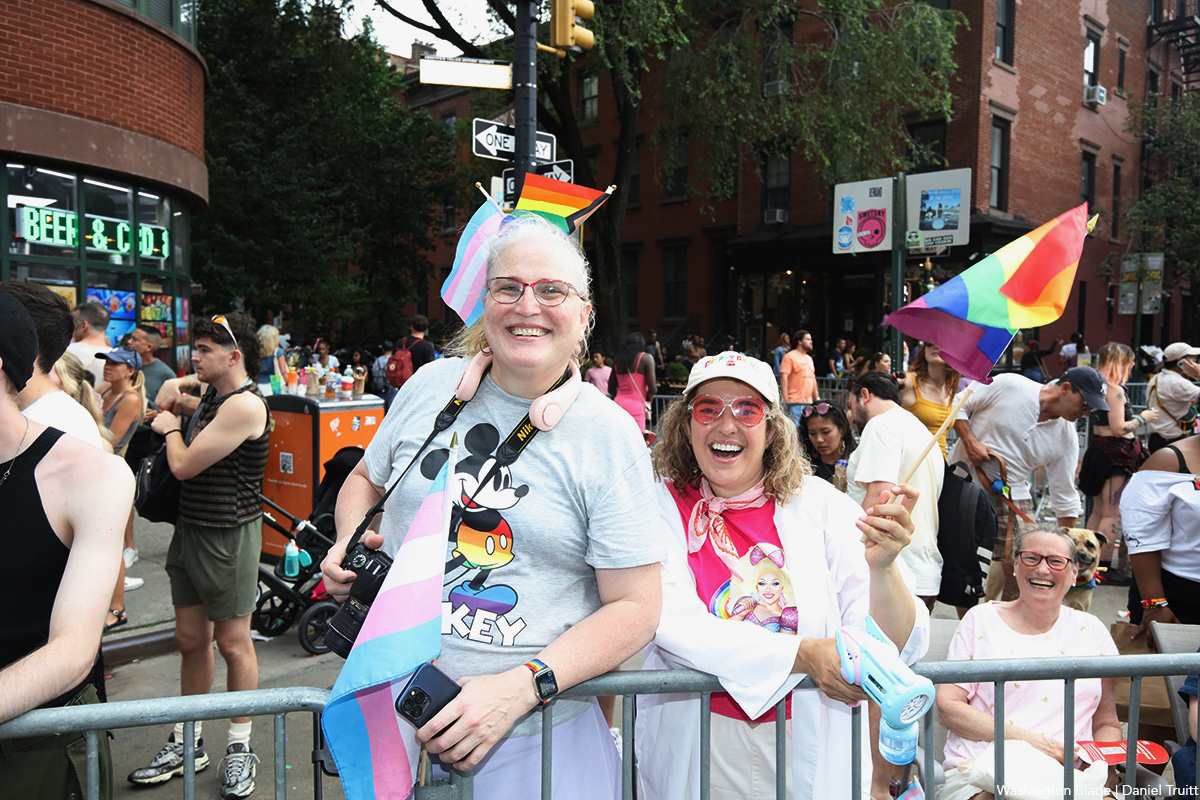
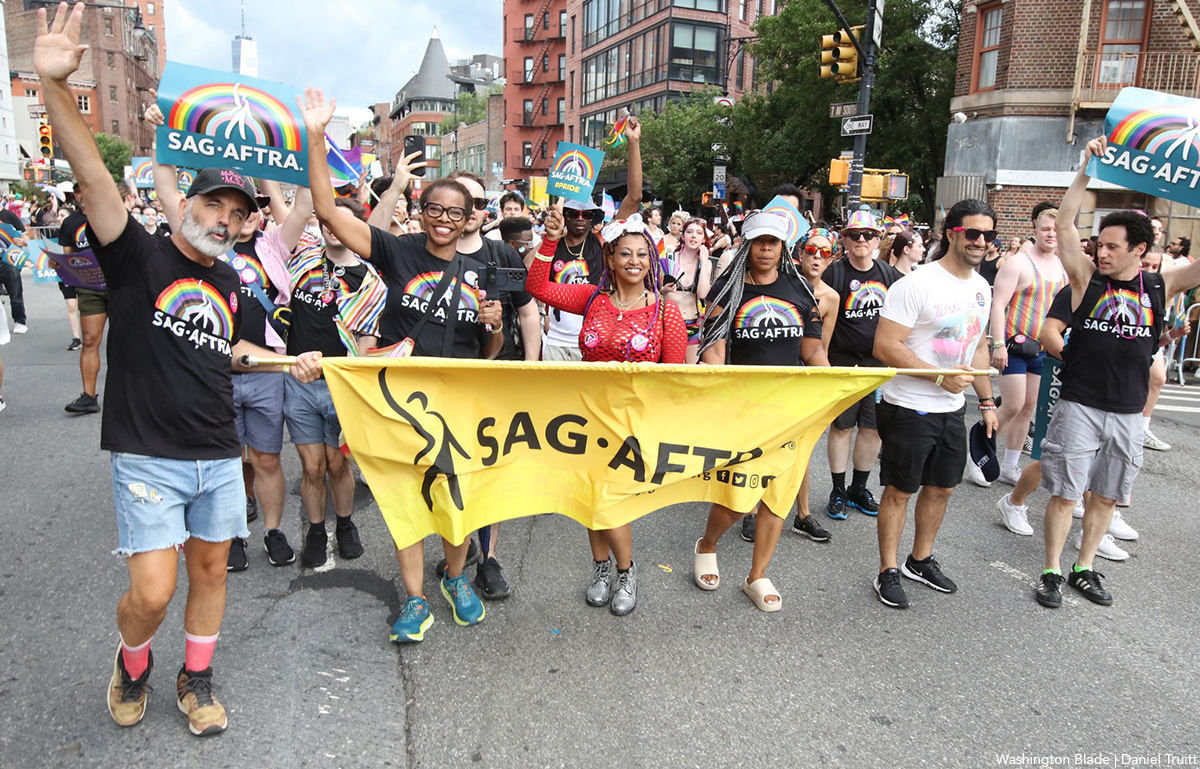
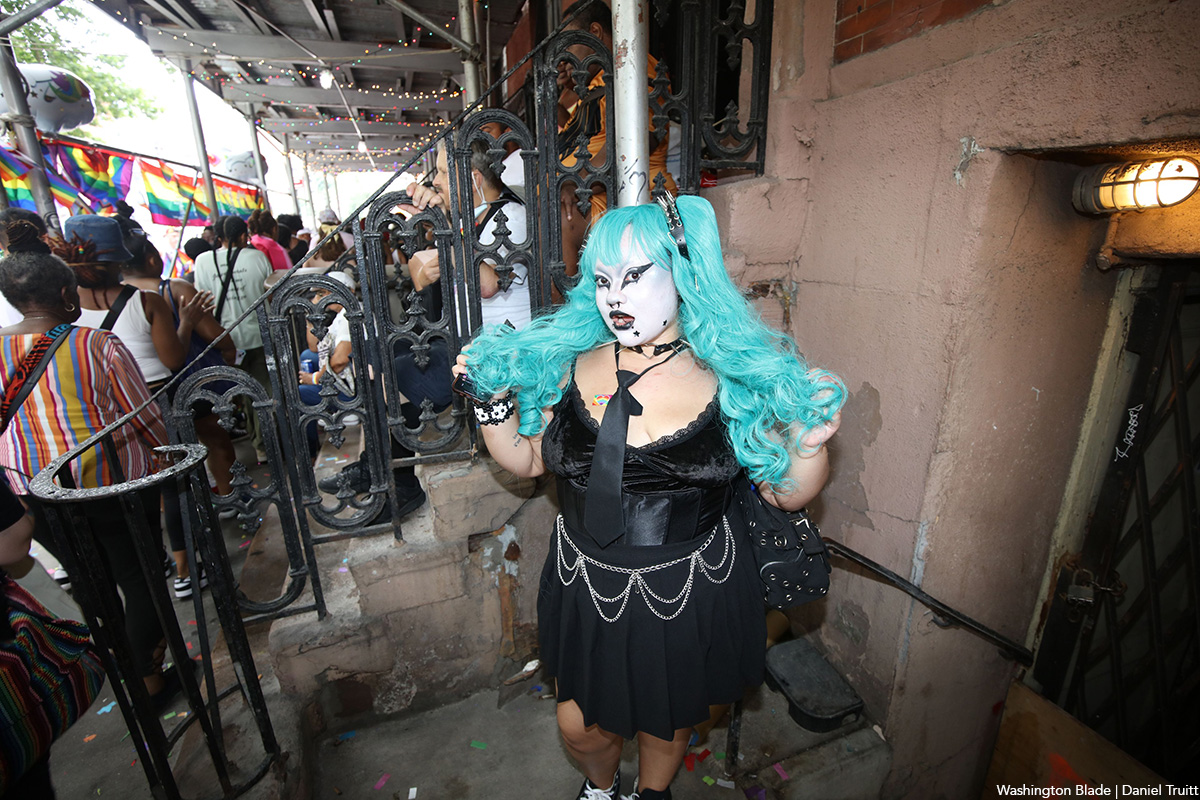
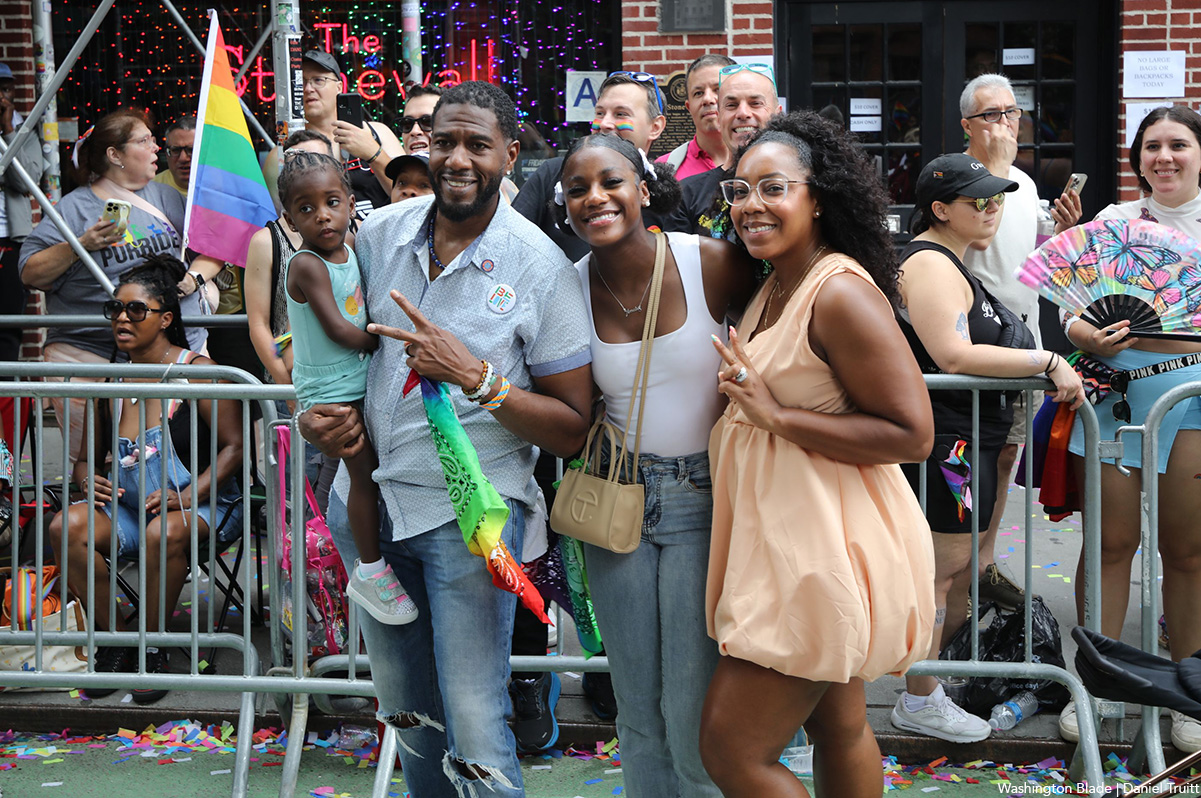
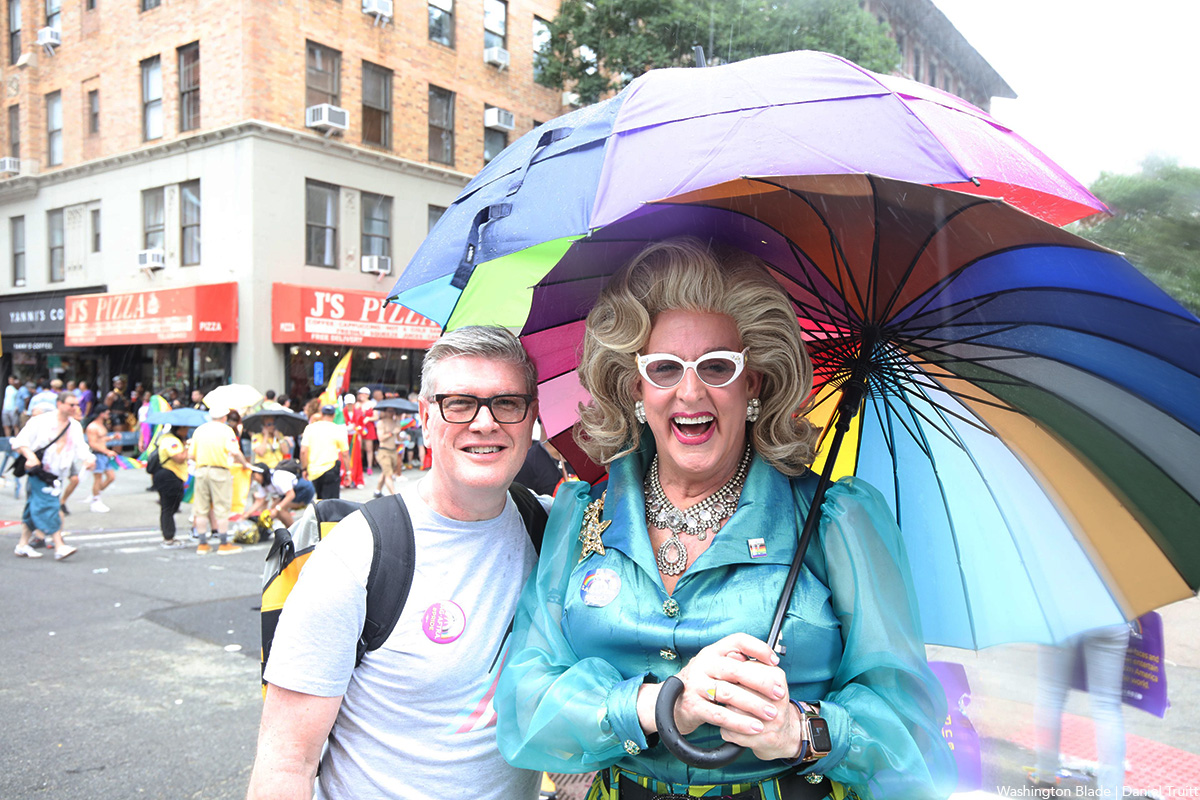

The fourth annual Fredericksburg Pride march and festival was held at Riverfront Park in Fredericksburg, Va. on Saturday, June 29. The event began with a march around downtown Fredericksburg beginning and ending in the park.
(Washington Blade photos by Michael Key)





























Covering Fredericksburg Pride for @WashBlade . City Council member @WillMackintosh speaking: pic.twitter.com/tDdVD2IVsM
— Michael Patrick Key (@MichaelKeyWB) June 29, 2024
-

 Canada2 days ago
Canada2 days agoToronto Pride parade cancelled after pro-Palestinian protesters disrupt it
-

 Theater5 days ago
Theater5 days agoStephen Mark Lukas makes sublime turn in ‘Funny Girl’
-

 Baltimore4 days ago
Baltimore4 days agoDespite record crowds, Baltimore Pride’s LGBTQ critics say organizers dropped the ball
-

 Sports4 days ago
Sports4 days agoHaters troll official Olympics Instagram for celebrating gay athlete and boyfriend

